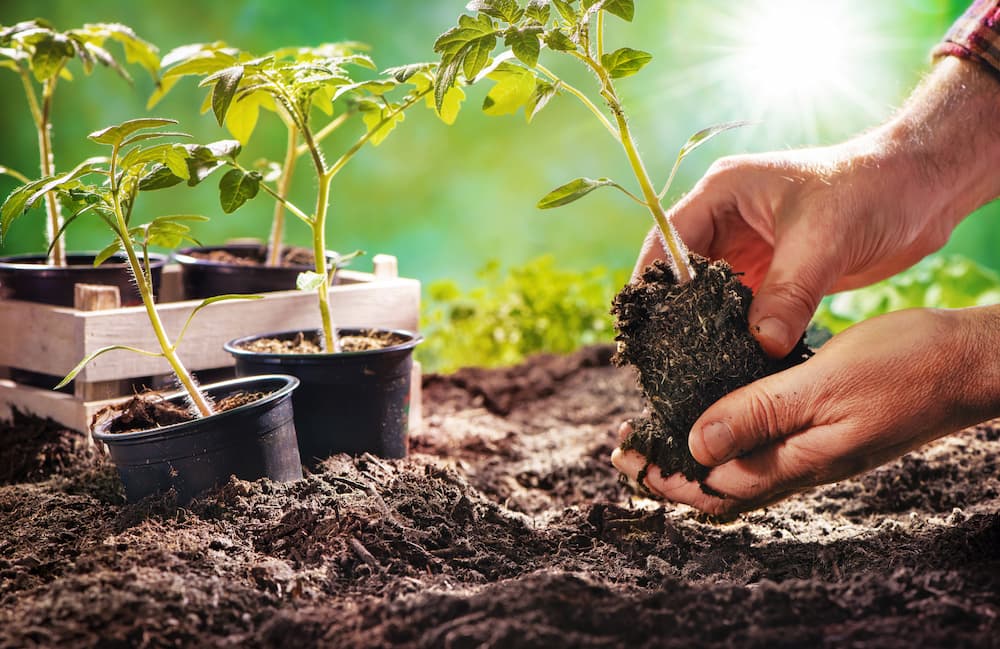Japanese maples are magnificent small trees to help create your zen garden along with…
A Guide to Plants That Smell Like Lemons
The heady fragrance of fresh lemon peel is unbeatably fresh, fragrant, and therapeutic. It’s among our favorite smells, along with some related botanical fragrances that mimic and/or reproduce this fragrance. Many of these plants are economically important for cosmetics, soaps, perfumes, and aromatherapy goods, and many of them you can grow easily at home.
What Makes Lemons So Lemony?
The true Lemon, Citrus limon, is thought to be native to Mediterranean climates and does best with protection in our North Texas winters, making them excellent container trees. Lemon trees produce leathery, oily leaves that contain lemon peel oil. This oil is highly prized for a variety of uses and is composed primarily of terpenes, primarily limonene (65%) and citral (5%). Citral is considered a mix of two aldehyde compounds, Geranial and Neral, and these two are the root compounds that provide that famous perfume: Geranial is the stronger of the two, while Neral is sweeter and less intense. Together, they give us the famous lemon perfume.
Our Favorite Lemon Scented Plants
Lemon Verbena
Aloysia citriodora (among other synonyms), is probably the most famous plant bearing the ‘Lemon’ distinction. The perfume of this plant is renown; it’s among the most beautiful, rich and relaxing lemony fragrances available anywhere, and is extremely hard to duplicate artificially. Lemon verbena is native to South America and is a frost-tender perennial subshrub with thin stems, elongated leaves with a hirsute (bristly hairy) pubescence, and tiny, delicate pinkish-white flowers. It also produces Citral, in greater concentration than Lemons, at around 30-35%. Lemon verbena is highly prized for both cosmetics and culinary purposes, with uses in cocktails, sorbets, and baked goods, as well as salads, soups and sauces.

Lemongrass
Cymbopogon citratus, is a tropical grass native to Asia. Although it is frost tender, it can get very large in one season with preferable conditions, easily reaching up to 4’ in height. Lemongrass also produces Citral, and surprisingly, in higher concentrations than Lemon Verbena: up to 70-80%. It has a clean, tangy lemon fragrance and is highly prized in many Asian cuisines, as well as both cosmetic and aromatherapeutic products. The tough, fibrous leaves are considered inedible at maturity; however, it’s the tender, white fleshy bases of the shoots that are used in cooking, while dried leaves are used to make herbal tea.

Lemon Cypress
Cupressus macrocarpa ‘Goldcrest’, is a cultivar of Monterrey Cypress, and can grow very large over time, but we carry them in small sizes and topiaries that make fantastic specimen plants. While it doesn’t contain the same oils as those lemony plants above, it does offer a cheerful pop of lemony chartreuse color with a fresh, citrusy fragrance. These make excellent conversation plants for live holiday decorations and gifts, and are easy to care for.
Find Lemon Scented Plants at North Haven Gardens
Each of these plants has its own unique qualities and uses, from cosmetics to cuisine. Whether you are looking to add some fragrance to your garden, or simply enjoy the fresh and relaxing aroma of lemons, these plants are sure to delight. Visit North Haven Gardens in Dallas, TX to see these plants for yourself and find the perfect addition to your own home garden. With a wide selection and expert staff, you’re sure to find the right plant for you. If you want more planting tips and gardening resources, sign up for the NHG newsletter.


